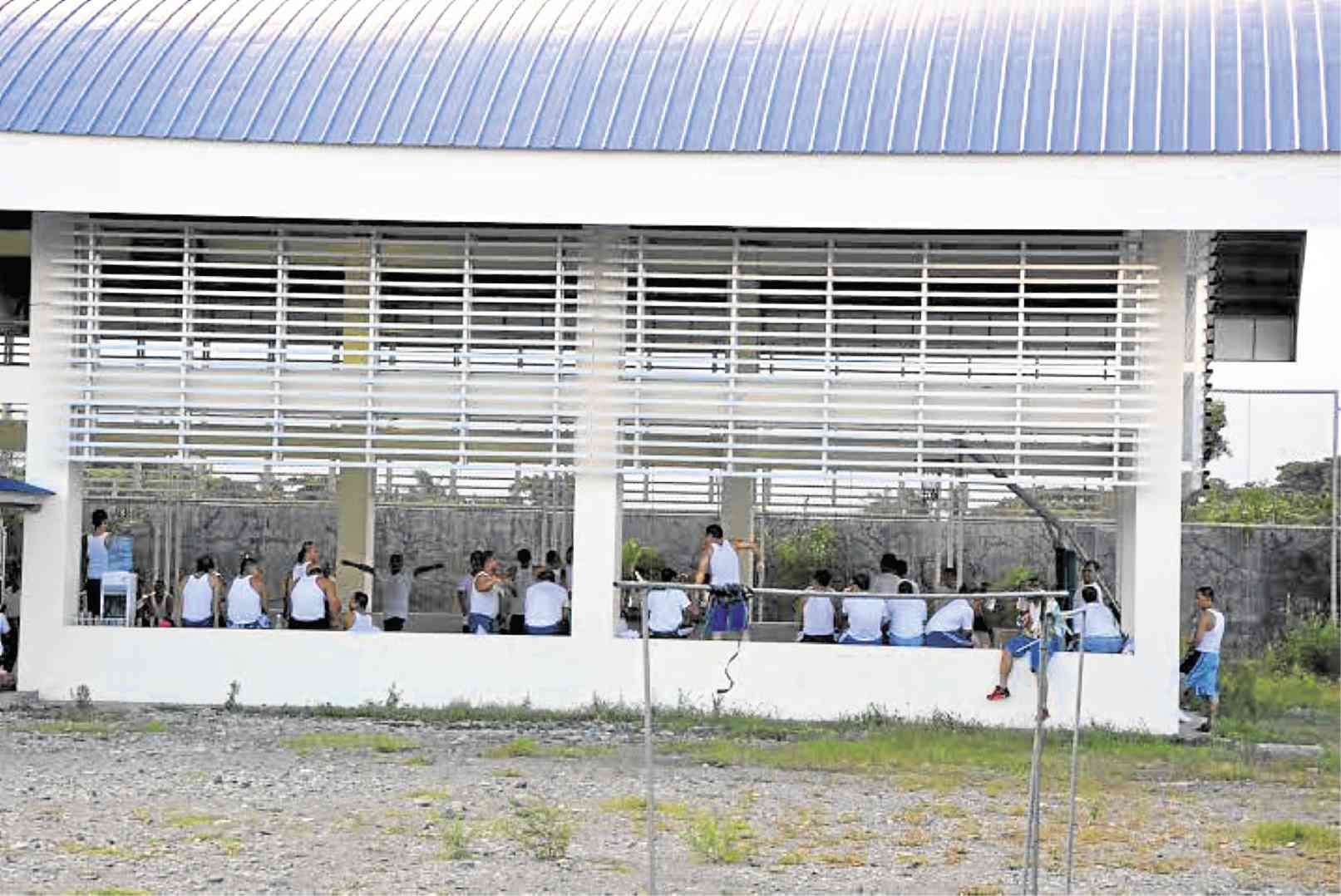Assist druggies before it’s too late, advocate urges gov’t

PATIENTS of the Department of Health’s Treatment and Rehabilitation Center in Dagupan City gather inside the center’s covered court for an activity. RAY ZAMBRANO/Inquirer Northern Luzon
LINGAYEN, Pangasinan—The Duterte administration may have succeeded in using fear to flush out drug users and pushers, but it must now rehabilitate addicts before they are lured back to their bad habits, a drug addict-turned-antidrug advocate said here on Friday.
“The government has to do something radical now, not just killing,” said Lemton Agricola, former executive director of the Alaminos Recovery Center for Drugs and Alcohol Dependency.
As of Friday, more than 100,000 confessed users and pushers had surrendered nationwide, while as many as 200 suspected drug dealers had been killed during gun fights with the police.
“Now is the time to reach these people while they are having a hard time getting supply. You need to recondition their everyday habit. These guys need to be reprogrammed because [drug use] is a culture and lifestyle,” Agricola said.
Agricola, a Filipino-Japanese-American, arrived in Pangasinan province in 1991 after serving jail time in Hawaii. He was also confined at a drug rehabilitation center for 28 months.
He said he was 11 years old when he began selling marijuana in the streets of Honolulu.
In 1994, he began his crusade against illegal drugs by speaking in student forums in schools in northern and central Luzon.
Agricola said local governments should organize daily counseling and lecture sessions for those who had surrendered. “These guys should be given insights on how to avert the temptation by rebuilding their core from the viewpoint of somebody they can identify with,” he said.
At the same time, he said, there should be random drug tests among them every six days to find out who had not stopped using drugs.
“The supply is still there. [‘Shabu’ or metamphetamine hydrochloride] is just more expensive at P300 [a sachet] now. It’s still there and people are still taking risks,” he said.
Motivation for change
The lectures, he said, must be holistic and family-based and inspiring enough to motivate them to change for the better.
“What do they expect to be? Where had they come from? Meaning, destroy their files. This is what these guys need, they need to be spoken to every day in the morning because in the morning you start your day,” Agricola said.
He said most of those who surrendered may sincerely want to quit their addiction but may not know what to do next.
“That’s the sad thing, they really have nothing to base their new path on. The government is offering them what? A slot in the rehab one day when it opens?” Agricola said.
He said, “These guys have a lot of things going in their minds right now and they can blame the government. Why? It’s because they’re quitting, hoping to quit [so they can have a better] future, but there are not enough jobs for them.”
“Some of them are professionals. They’re functional addicts, they’re not all jobless, dropouts, losers. Many of them have families, they have businesses,” he said.














